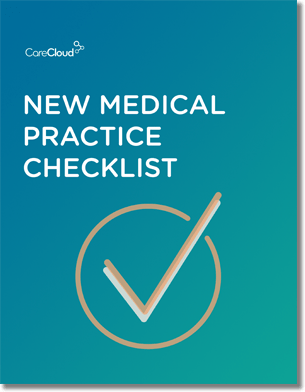If start-ups are the new punk rock, then getting a slot in an accelerator is like being gifted a Johnny Ramone signature Mosrite guitar. Well, if getting something shiny and geek-worthy isn’t still against punk’s alternative ethos.
I’m a sentence away from really complicating this metaphor, which is appropriate when discussing startups, whose initial stages are often as complicated as the coding involved in crafting their products and services. Hence the accelerator trend: we’re seeing an increasing amount educational programs nationwide that propel early-stage start-ups by critiquing entrepreneurs’ prototypes and connecting them with investors.
Last month saw the announcement of the New York Digital Health Accelerator (NYDHA), a joint offering from the New York eHealth Collaborative (NYeC) and the Partnership for New York City Fund (Partnership Fund). The accelerator aims to harness health IT innovation across the five boroughs and is the largest-funded program of its kind in the country.
“The initiative […] is resulting in better care – at lower cost – for patients across the continuum of care,” said New York State Health Commissioner Nirav R. Shah, MD. “The Accelerator is an essential first step to stimulate the market and nurture innovation within the entrepreneurial community.”
Now, New York is a sort of hatchery for experimentation; the city is everything from an experimental art hub to a beacon for political trialing, like Mayor Bloomberg’s recent micro-unit proposition and the successful TechStars accelerator, so it’s no surprise they’d help pave the way for health IT as well. But is this kind of initiative possible in other cities?
More often than not, accelerators don’t pigeonhole their applicants. Instead of focusing on one aspect of the wide and varied tech startup sphere – say social networking services or creating open source technology – these accelerators will look at any applicant from a Dropbox to a ZocDoc.
But that may also be why you haven’t heard of Simmery, Mernamp, or YouOS – all dead Y Combinator grads.
Y Combinator, as well as nearly every other accelerator, exists because of its investor community – it caters to VCs and exists as a result of them. Accelerators are normally focused on growth, not revenue, and expect to have at least one startup from each class experience fast to explosive growth. And if you’re community boasts high VC activity, then an accelerator can work in your area.
But the Partnership Fund is a private initiative, dedicated to spurring job growth over making a profit, and nonprofit New York eHealth Collaborative is striving to be New York State’s public resource for health IT.
These organizations dedicate themselves to helping forward-thinking organizations, a model that is perhaps suitable for your city.
Case in point: the NYDHA’s initial investment of $4.2 million, which officials believe will contribute about 1500 jobs over a five-year period. The accelerator is also expected to attract upwards of $150 million to $200 million in investment from the venture capital community post-program.
Also, a tech startup is a volatile enterprise in a rather competitive marketplace, so applicants consider applying to accelerators beneficial, due to the potential guidance and access to investors they’ll receive.
Mikko Jarvenpaa, author of Speed Up Your Startup, surveyed 150 accelerator graduates, who agreed that while mentorship and access to investors were very beneficial for their businesses.
However, only 22 percent of participants reported the accelerator’s industry contacts were above average, with a whopping 46 percent classifying them as neutral or poor.
Industry-centric endeavors like the NYDHA do what many Meetups execute so well, and that specializes in funding and mentoring startups in a given realm.
Here’s a noteworthy factor – the NYDHA will give its eight participating startups direct access to the Statewide Health Information Network of New York (SHIN-NY), an easily accessible database that gives healthcare professionals access to electronic health records and clinical informatics services. Support at the state level gives the NYDHA additional ammo to justify its existence.
And then there’s the market. Y Combinator and other Silicon Valley startups are located in the epicenter of the hardware tech world, and there is a reason the setting of the PC revolution became such a massive hub for investors.
But not every city boasts Apple, eBay, and Google. And while New York is arguably a market for everything – NYC’s health IT activity alone counts on names like MedStartr, WebMD, StartUp Health, Blueprint Health and IBM’s HIT initiatives – accelerators that cater to certain industries would do well in a complimentary city or cities with more of a need for a certain kind of service or product.
On that note, other health IT accelerators would thrive in Chicago, which recently implemented a health information technology initiative on the local level to drive the creation of high-level jobs, Boston, which boasts a large concentration of startup activity and is arguably the center of biotech, and even Miami, whose high (>25%) population of uninsured and Medicare patients vastly overwhelms its medium-sized physician population, proving we’re all in need of problem-solving.
But to do this, cities need an all-hands-on-deck kind of attitude – all levels from local government to the patients themselves need to be on board to mimic the collaborative non-profit, governmental, private sector, and individual support for health IT growth exhibited in New York City. The ingredients are known, and the rest is a matter of actually doing it.

Do you know what you need when setting up a new medical practice?


